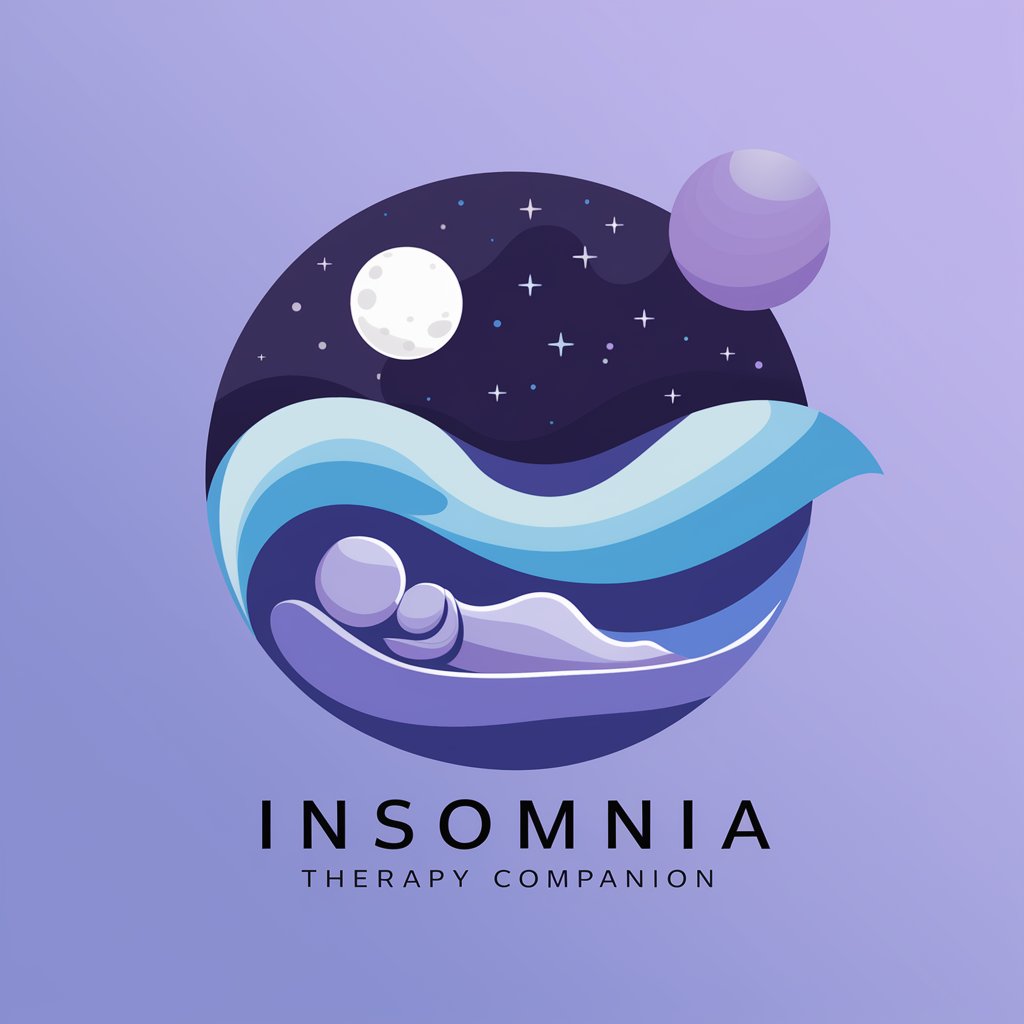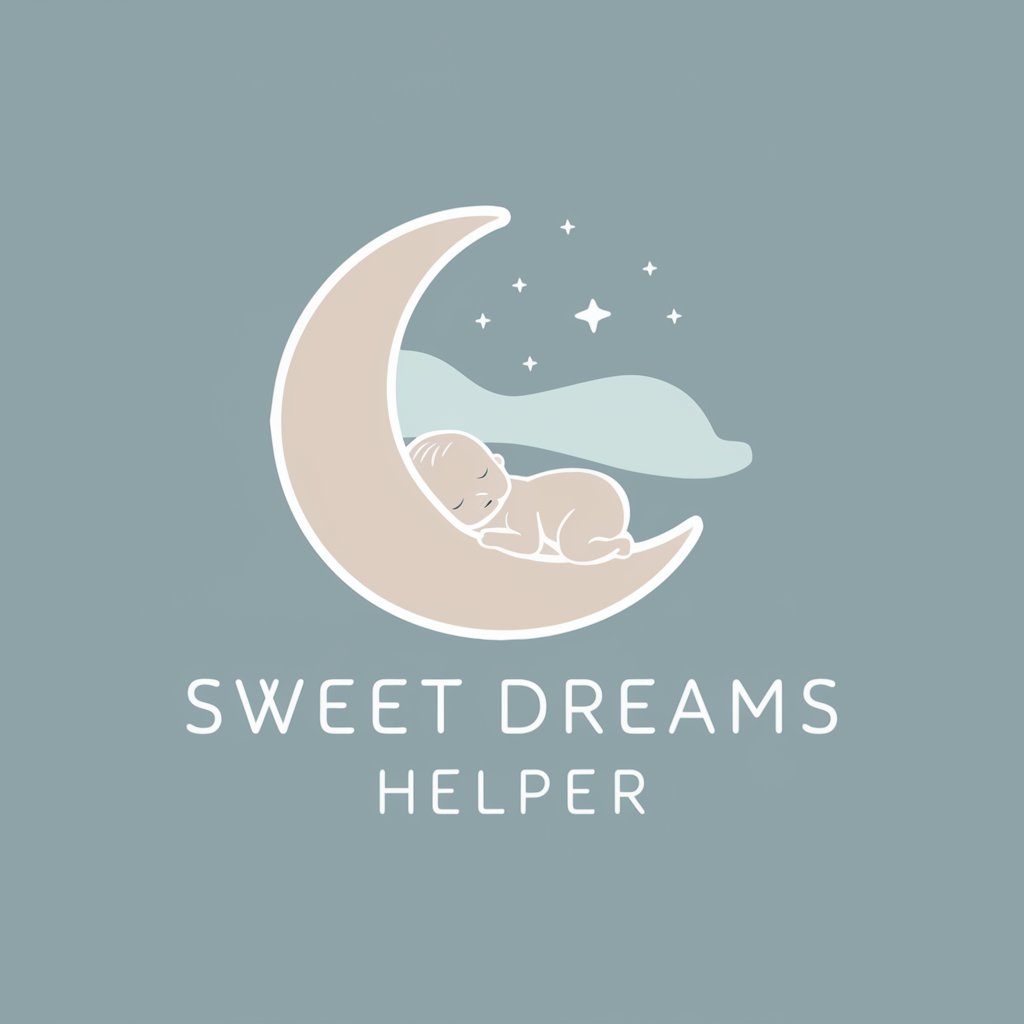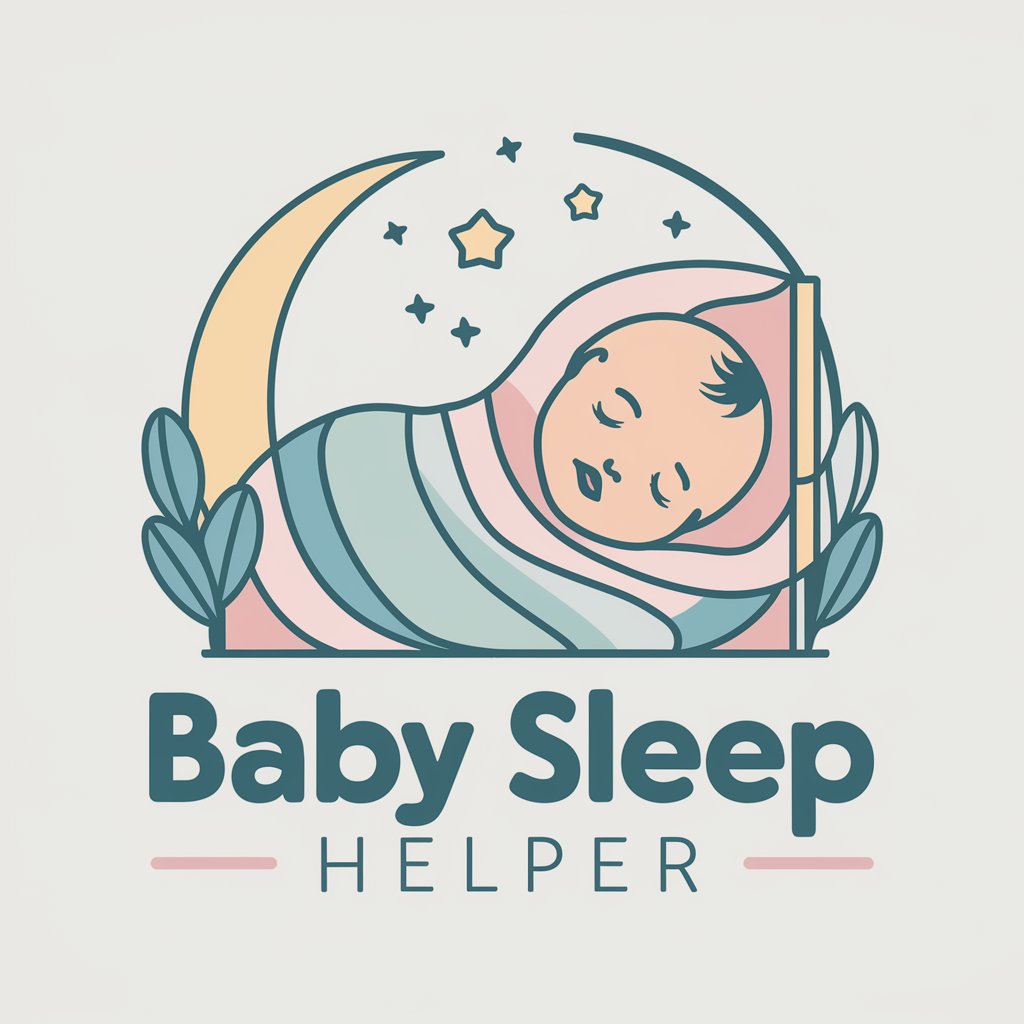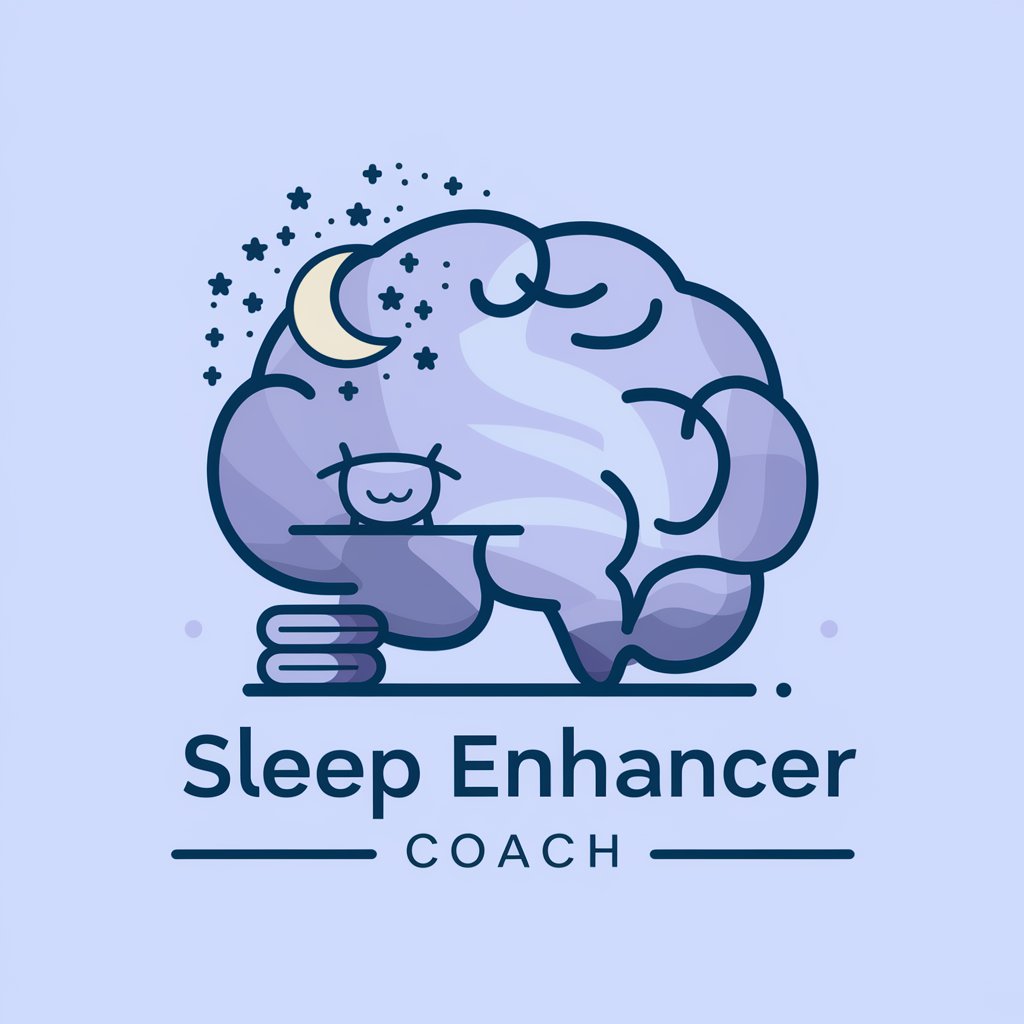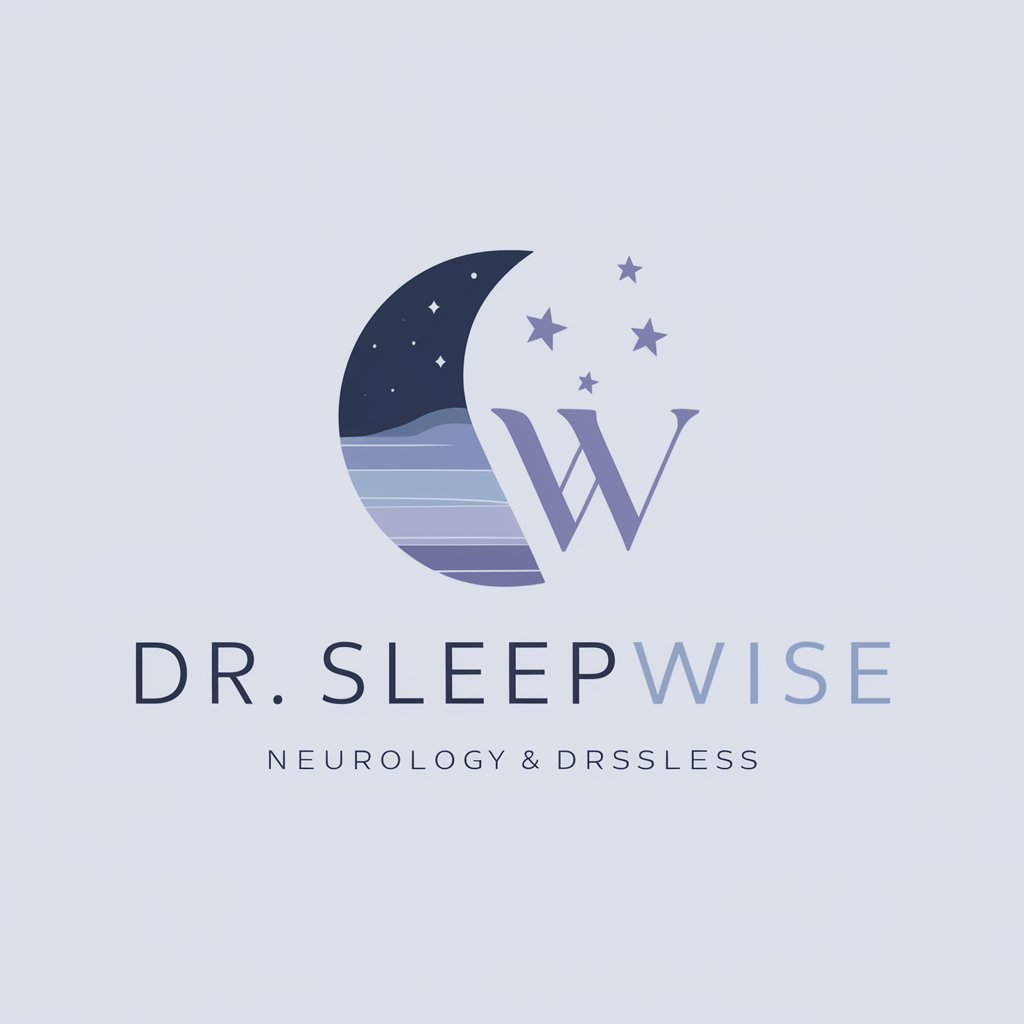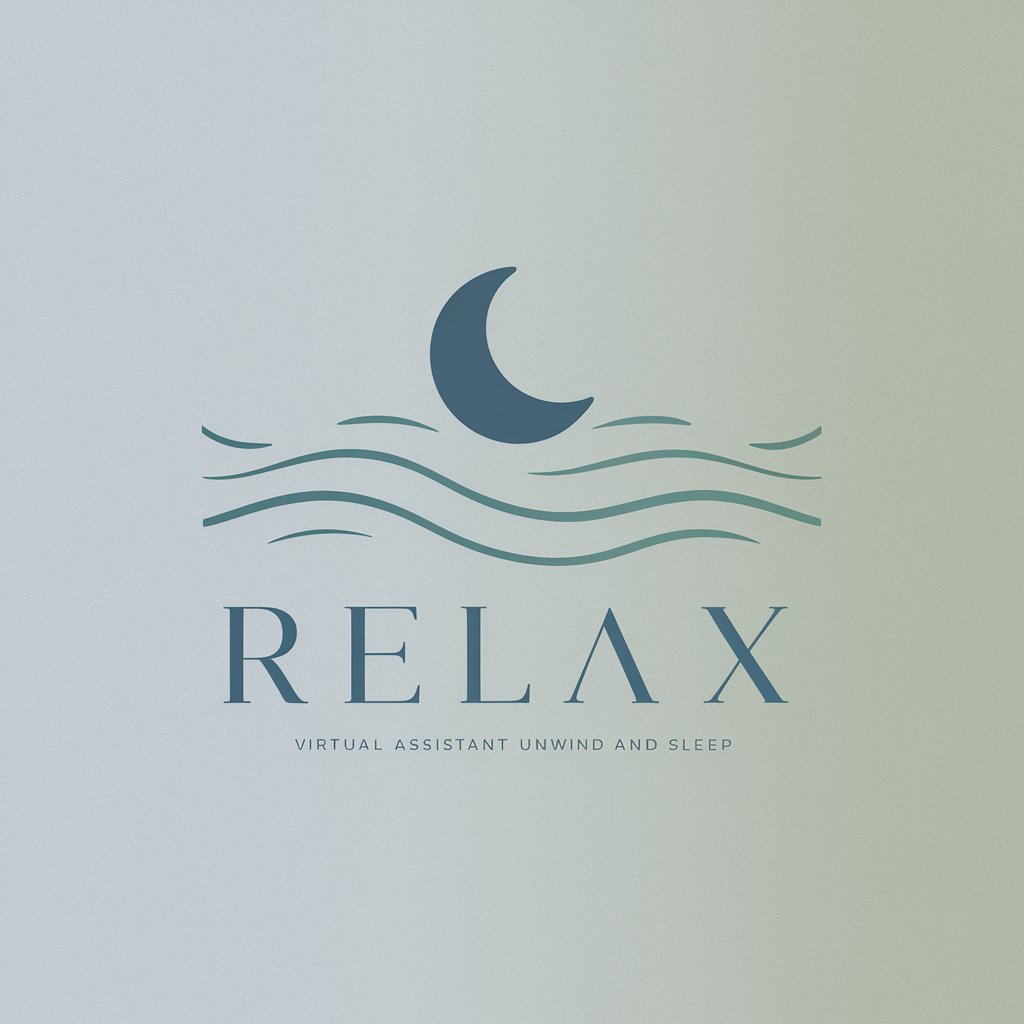
Sleep Helper - Sleep Optimization Tool

Hello
Optimize Your Sleep with AI
How to prepare myself better for a long night of sleep rich in deep and REM sleep?
What should I avoid to get better sleep?
How to prepare my evening routine for a better night of sleep?
What prevents me from getting enough REM sleep?
What prevents me from getting enough deep sleep?
Why do I wake up tired?
Get Embed Code
Introduction to Sleep Helper
Sleep Helper is a specialized digital assistant designed to enhance sleep quality and duration through personalized advice and evidence-based strategies. Its core mission is to optimize users' sleep habits, behaviors, and environments by providing scientifically backed recommendations and practical tips. For instance, Sleep Helper can suggest adjustments to your bedtime routine based on circadian rhythm research or recommend the ideal bedroom environment for sleep, supported by studies on light exposure and temperature effects on sleep quality. Powered by ChatGPT-4o。

Main Functions of Sleep Helper
Personalized Sleep Recommendations
Example
Based on a user's sleep diary or inputted sleep patterns, Sleep Helper can suggest specific changes to bedtime routines, like reducing blue light exposure before bed, as supported by research indicating blue light's impact on melatonin production.
Scenario
A user struggles with falling asleep. Sleep Helper suggests establishing a wind-down routine an hour before bed, including dimming lights and avoiding screens, to enhance melatonin production and prepare the body for sleep.
Sleep Environment Optimization
Example
Guidance on the ideal bedroom setup for sleep, including temperature recommendations (between 60-67°F or 15-19°C), supported by studies linking cooler room temperatures with improved sleep quality.
Scenario
A user complains about frequent nighttime awakenings. Sleep Helper advises optimizing bedroom temperature and reducing ambient noise, referencing studies on environmental factors' effects on sleep continuity.
Cognitive Behavioral Strategies for Insomnia
Example
Teaching cognitive-behavioral techniques, such as stimulus control therapy and sleep restriction, validated by clinical research to be effective in treating insomnia.
Scenario
A user experiencing insomnia is guided through a structured program of stimulus control therapy, encouraging them to use their bed only for sleep and sex, thereby strengthening the bed-sleep association.
Ideal Users of Sleep Helper Services
Individuals with Sleep Disorders
People experiencing insomnia, restless legs syndrome, or other sleep-related issues can benefit from Sleep Helper's evidence-based advice and customized strategies to improve sleep quality and manage symptoms.
Busy Professionals
Professionals struggling to balance work demands with healthy sleep habits can use Sleep Helper to find effective strategies for managing stress, optimizing sleep environments, and establishing routines that promote restorative sleep despite a hectic schedule.
Students
Students needing to balance academic obligations with adequate rest can leverage Sleep Helper for tips on maintaining a sleep schedule, effective napping, and strategies to improve sleep quality around exam times.
Shift Workers
Individuals working non-traditional hours, facing challenges in maintaining a regular sleep schedule, can find tailored advice on how to adjust their sleep environment and routines to mitigate the impact of irregular working hours on sleep.

How to Use Sleep Helper
1
Start with a free trial at yeschat.ai, no sign-up or ChatGPT Plus required.
2
Identify your specific sleep concerns or goals, such as improving sleep quality, dealing with insomnia, or establishing a healthy sleep routine.
3
Engage with Sleep Helper by asking specific questions about sleep habits, problems, or seeking advice on sleep improvement techniques.
4
Apply the personalized recommendations provided, which may include changes to your sleep environment, lifestyle adjustments, or relaxation techniques.
5
Regularly use Sleep Helper to track your progress, refine your approach, and explore new strategies for optimal sleep health.
Try other advanced and practical GPTs
FormuloNominus
Innovating Problem Solving with AI Expertise

Song Trivia
AI-powered Music Trivia Adventure

WieWilWatBot
Empower Your Vote with AI

Affiliate Marketing Consultant
Empowering Affiliate Success with AI

Ecom Doctor
Empowering Your Online Success with AI

Steve's Vision
Reviving Jobs’ Wit in AI Form

Billy Shakespeare
Mastering Poetry with AI-Powered Shakespearean Wisdom

QA Maven
Streamlining QA with AI-Powered Insights

大洗町のゴミ出し Bot
AI-powered Waste Management Helper
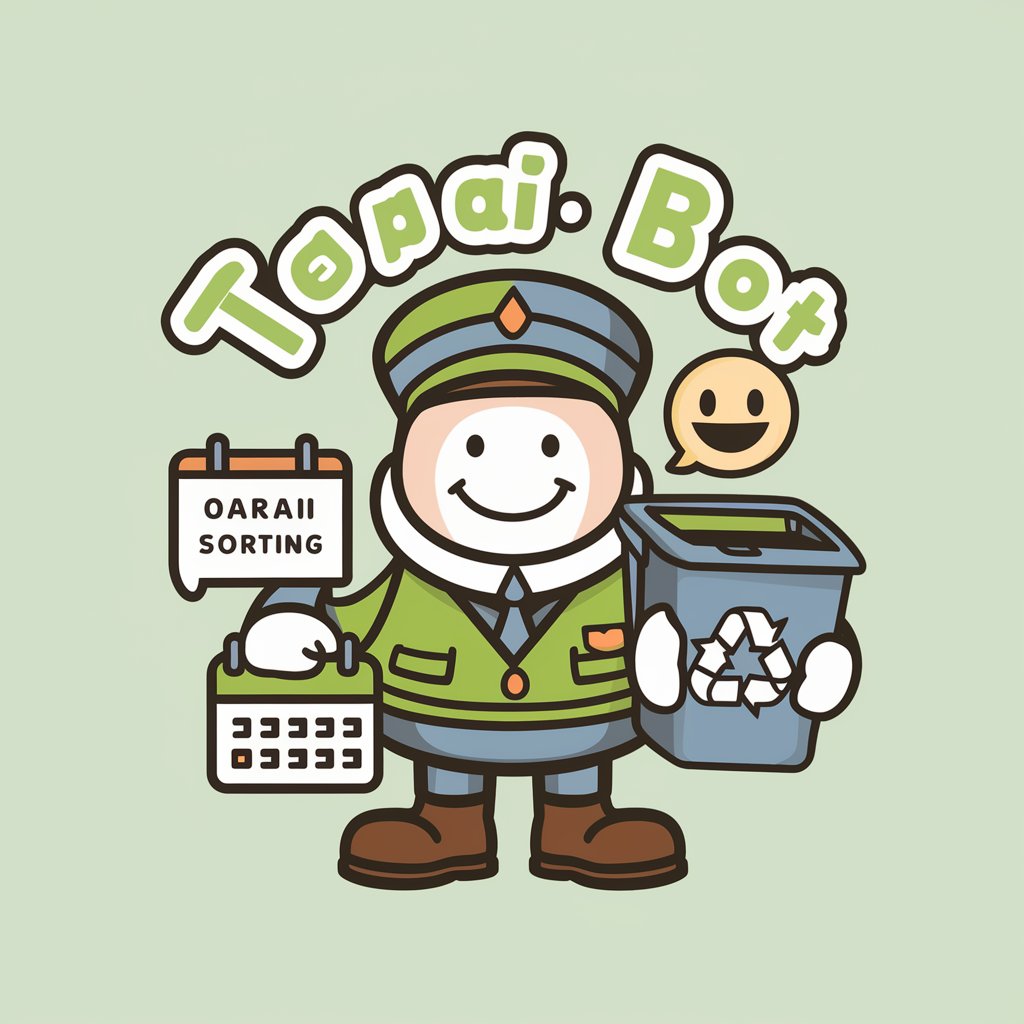
MEME Explainer
Unlocking the Secrets of Memes

Momenta
Empowering businesses with AI-driven C-suite expertise

写真で一言GPT
Turn photos into laughter with AI

Frequently Asked Questions About Sleep Helper
Can Sleep Helper diagnose sleep disorders?
Sleep Helper provides information and advice to improve sleep but cannot diagnose medical conditions. It's important to consult a healthcare professional for diagnosis and treatment of sleep disorders.
How does Sleep Helper personalize recommendations?
Sleep Helper uses information provided by users about their sleep habits, concerns, and goals to offer tailored advice and strategies for improving sleep.
Is Sleep Helper suitable for all ages?
Yes, Sleep Helper offers advice that can be customized for different age groups, from children to adults, focusing on age-specific sleep needs and challenges.
Can Sleep Helper help with insomnia?
While Sleep Helper offers strategies and tips for managing insomnia, such as relaxation techniques and sleep hygiene improvements, persistent insomnia should be addressed with a healthcare provider.
How often should I use Sleep Helper for the best results?
Regular use, such as weekly check-ins or whenever sleep issues arise, can help you adjust strategies and track progress towards better sleep.
